The note-taking tablet has been a wishlist item for most students lately. While there are several benefits to taking the plunge and purchasing one for your child, are they really better than a laptop? And does the device truly assist in retaining information better than the old and faithful notebook and pen?
As a note-taking tablet kid myself, I can tell you that it’s a great tool, but it’s not for everyone.
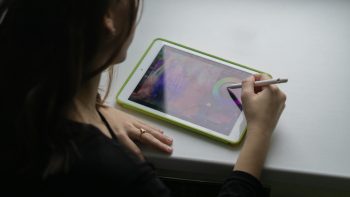
What is a note-taking tablet?
Given how classrooms have become so reliant on technology, this may seem like a redundant question. However, it’s important to get the facts down.
When it comes to tablets, you’re spoiled for choice – from a multitude of Apple iPads and Samsung Galaxy tablets to the Lenovo tablet. Most sit at around the same price point, and more often than not, you need to purchase the stylist or ‘pen’ separately.
Either way, it’s a relatively big investment and if your child’s school requires a laptop of any sort, adding a tablet to your cart might not be worth it. If, on the other hand, the school requires any form of digital device, the right tablet might be the only thing you need to invest in.
Most brands these days offer tablets that connect with keyboards, which allows them to type and scribble away to their heart’s content.

Pexels
What are my options?
Now, if your child has dragged you to sit and watch the hundreds of YouTube videos on note-taking tables (I know I did), you’ll be aware of the many available choices. You would have been wowed by the powers of a fancy stylist and the wonderful notes they’ll be able to take when studying.
The South African market is a little limited, though, and most times you’ll be stuck between choosing an iPad and a Samsung Galaxy tablet.
As an Apple geek, I would, of course, suggest the iPad. But the Samsung does have several redeemable qualities. Depending on your budget, you have several choices for either brand.
Here’s what you should consider when buying a note-taking tablet:
Your budget
This is, of course, a major factor for any big purchase. Luckily, if your child is asking for an iPad, you can pick up the 9th generation iPad for under R7,000.00. However, you do need to throw in the Apple Pencil 1st generation, which is around R2,500.00.
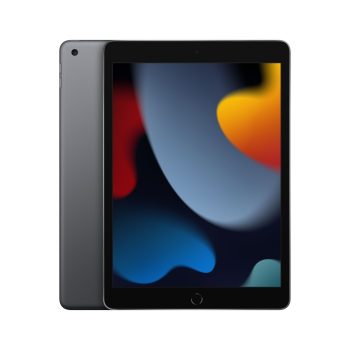
Apple iPad 9th Generation, starting from R 6 499
The latest generation of ‘standard’ iPads, the 10th generation, starts at R8,599.00 and the additional Apple Pencil (with USB-C) is R1,999.00. So, all in, just over R10,500.00.
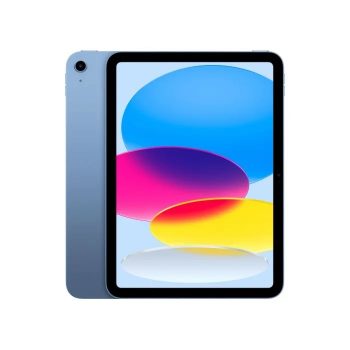
iPad 10th Generation, from R8 599
When it comes to the Samsung Galaxy Tab, though, your most affordable option (at the stage of writing this article) with the latest technology is the Samsung Galaxy S9 FE which is around the R12,000.00 mark. The tablet does come with the S Pen, so you won’t be incurring additional costs.
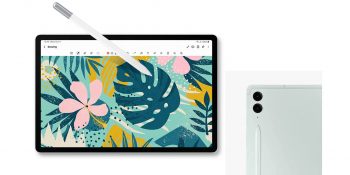
Galaxy Tab S9 FE 5G starting from R 12 999
The prices only go up from there.
Your ecosystem
Apple fans know and use this term a lot. But it’s not just a marketing ploy, and Samsung uses it too. For ease of use across several devices, it’s easier to stick with one brand, or in the case of Samsung, one operating system.
If your home and child rely on Android products, it might just be easier to stick with the Samsung Galaxy tablet.
However, if your home or your child uses an iPhone or any other Apple product, opt for the iPad.
The school’s requirements
As mentioned, the school’s requirements might steer you in one direction or another. Chrome books are often a set requirement and they cost a pretty penny on their own. However, if any device is required just for a Google Classroom set-up, you might get away with the purchase of just a note-taking tablet.
Wireless and Bluetooth keyboards are available in abundance and can turn most tables into functioning typing tools. I refrain from using “laptop” because we’re still a ways away from that. However, the iPad does a far better job of emulating a computer than the Samsung.
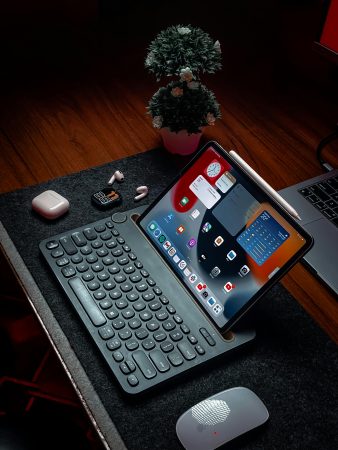
Pexels
And the note-taking experience is incredible in a digital set-up. My study sessions during university were easier with my iPad, and the ability to have an endless writing space allowed take more in-depth notes. It was also easier to jot down notes during lectures.
If the school allows for digital notes and the need for a device of any kind, a note-taking tablet might just be the perfect thing for your child.
But is it truly necessary?
I can imagine that this is the question plaguing your mind as you read this article.
The truth is no. A note-taking tablet is not the be-all and end-all. Your child will do great in school with or without one.
However, the ability to write notes on a tablet is just as beneficial to studying as writing on paper. It also helps that using a tablet to take notes feels familiar to kids who spend their lives staring at screens. And to be honest, it makes learning fun. Which is probably the most important factor in all of this.
You can get away with just a laptop, but tablets are becoming more and more advanced and with the current technology, you could make a once-off purchase that could reap benefits for years to come.
Tablets are more versatile, from being an all-in-one learning tool to being an all-in-one entertainment device. From drawing to reading to studying, a tablet really can do it all.
So, if you can, consider a note-taking tablet for your children.
ALSO SEE:
Featured Image: Pexels

